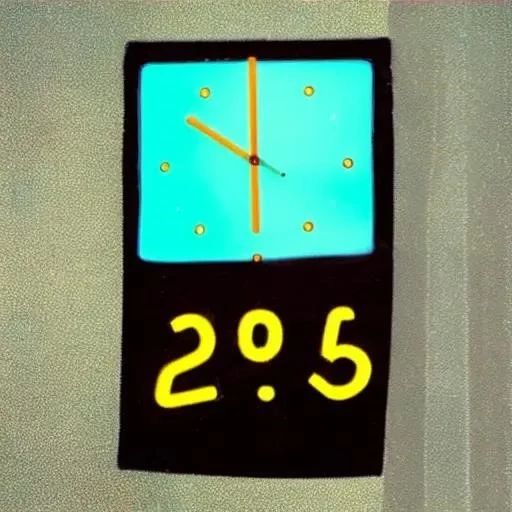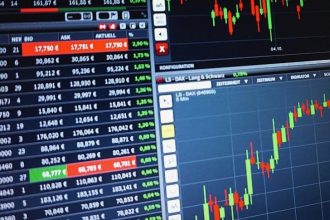It’s a question that echoes across trading forums and murmurs in the minds of novice investors: “Do forex trades expire?” The very notion of an expiration date, conjuring images of ticking clocks and looming deadlines, often introduces an unnecessary layer of anxiety into the fast-paced world of currency exchange. Many entering the vibrant, liquid forex market, having previously dabbled in stocks or options, naturally assume a similar finite lifespan for their positions. However, a deeper understanding of the market’s mechanics reveals a nuanced and often empowering reality, one that liberates traders from the artificial constraints of a countdown and opens up a realm of strategic possibilities.
The immediate answer, especially concerning the most prevalent form of currency trading—spot forex—is a resounding ‘no’ in the traditional sense. Unlike, say, a stock option with its predefined strike and expiry date, a spot forex trade, representing a direct exchange of one currency for another, doesn’t simply vanish into the ether at a predetermined moment. This fundamental distinction is incredibly powerful, reshaping how traders approach risk management, long-term strategies, and the very concept of market engagement. By integrating insights from this core principle, participants are better equipped to navigate the intricate dance of global currencies, leveraging time as an ally rather than a relentless adversary.
| Key Aspect | Description | Impact on Trade Duration/Expiry | Reference Link |
|---|---|---|---|
| Spot Forex Trades | Direct exchange of one currency for another, typically settled within two business days (T+2). | No inherent expiry date. Trades remain open until manually closed by the trader or automatically closed by margin call/stop-loss. | Investopedia: Forex Trading |
| Forex Futures Contracts | Standardized, exchange-traded contracts to buy or sell a specified currency pair at a predetermined price on a future date. | Yes, definite expiry date. These contracts have fixed expiration cycles, after which they must be settled or rolled over. | Investopedia: Futures Contract |
| Forex Options Contracts | Gives the holder the right, but not the obligation, to buy or sell a currency pair at a specified price before or on a specific date. | Yes, definite expiry date; Options contracts are time-sensitive and become worthless if not exercised by their expiration. | Investopedia: Options Trading |
| Rollover / Swap Fees | Interest adjustment (paid or received) for holding an open spot forex position overnight, reflecting interest rate differentials between the currency pair. | Not an expiry, but continuous fees (especially negative ones) can make holding a position long-term uneconomical, effectively influencing a trader to close. | Babypips: Rollover |
| Margin Calls | A demand from a broker for additional funds to bring an investor’s account up to the minimum maintenance margin. | Failure to meet a margin call can lead to the broker automatically closing positions, effectively ending the trade prematurely. | Investopedia: Margin Call |
Spot Forex: A Horizon Without Limits
When most people refer to “forex trades,” they are typically talking about spot currency trading. This segment of the market operates 24 hours a day, five days a week, making it a truly global, continuously flowing river of capital. A purchased currency pair, like EUR/USD, remains in your portfolio, accruing or losing value, until you decide to close it. This continuous nature is a significant advantage, granting traders unparalleled flexibility. Imagine holding a stock without ever being forced to sell it, free to weather temporary dips or ride out extended trends. That’s the inherent power embedded within spot forex.
However, this open-ended characteristic doesn’t mean trades are immune to external pressures or strategic considerations. While the trade itself doesn’t expire, its viability certainly can. Consider the impact of rollover or swap fees, for instance. These are interest adjustments applied to positions held overnight, reflecting the interest rate differential between the two currencies in a pair. A positive swap can slightly boost your profits, but a negative swap, if substantial and prolonged, can gradually erode your capital, making an otherwise profitable trade turn sour over an extended period. This mechanism, though not an expiry, serves as a natural deterrent against indefinitely holding positions without careful consideration of carrying costs.
The Nuance of Derivatives: Where Expiry Reigns
While spot forex offers a perpetual horizon, it’s crucial to understand that not all forex-related instruments share this characteristic. Derivatives like forex futures and forex options inherently come with expiration dates. A forex futures contract, for instance, is an agreement to buy or sell a specific amount of a currency at a predetermined price on a future date. This date is fixed, and upon its arrival, the contract must be settled or rolled over into a new one. Similarly, forex options grant the holder the right, but not the obligation, to buy or sell a currency pair at a specific price before a certain date. If that date passes without the option being exercised, it expires worthless.
Understanding these distinctions is paramount for any serious trader. As Dr. Eleanor Vance, a veteran currency strategist, once articulated, “Confusing the mechanics of spot with the finite nature of derivatives is akin to confusing a perpetual motion machine with a wind-up toy. Both can generate movement, but their underlying operational principles are fundamentally different.” Her insightful analogy underscores the importance of precision in trading knowledge, emphasizing that clarity on these definitions is the bedrock of informed decision-making.
Empowering Your Strategy: Managing Risk in a Timeless Market
The absence of a traditional expiry in spot forex empowers traders, offering them a unique canvas for strategy. This isn’t a free pass to ignore risk, but rather an invitation to redefine it. Instead of a calendar dictating when a trade ends, your risk management tools—like stop-loss orders and take-profit levels—become the primary determinants. A stop-loss order, placed at a predefined price, automatically closes your position if the market moves against you beyond a certain threshold, safeguarding your capital. Conversely, a take-profit order ensures you lock in gains once a desired price target is reached. These are the true “expiry mechanisms” in spot forex, activated by market movement and your strategic intent, not an arbitrary date.
Looking ahead, the evolving landscape of fintech and AI will only further refine these dynamics. Predictive analytics, driven by increasingly sophisticated algorithms, will help traders better anticipate market shifts, allowing for even more precise placement of these critical protective orders. By embracing technology and a deep understanding of market fundamentals, traders can transform the “no expiry” characteristic from a potential source of confusion into a powerful strategic advantage. The forex market, with its continuous flow, stands as a testament to opportunity, inviting those who understand its rhythms to chart their own course, unburdened by the tyranny of the clock.






